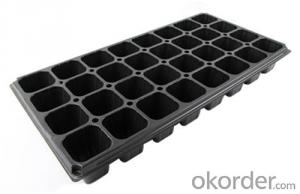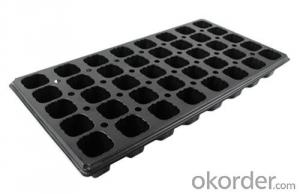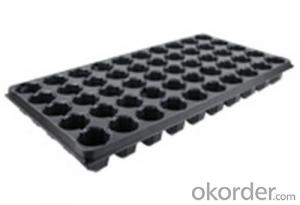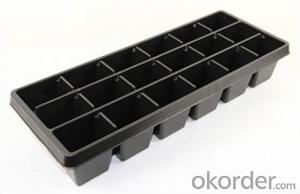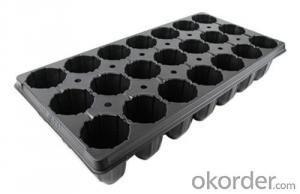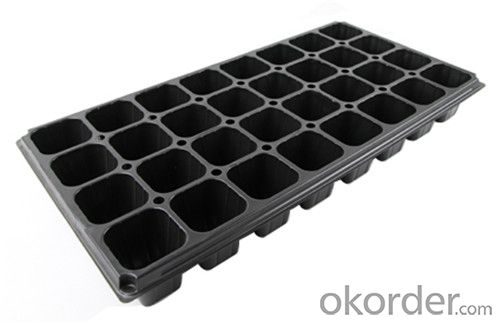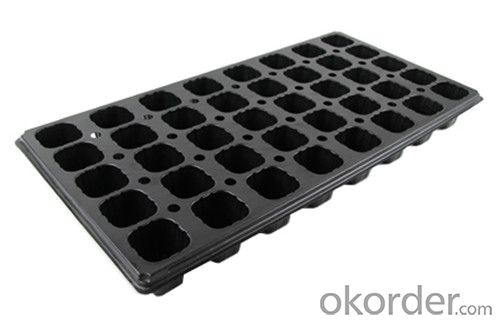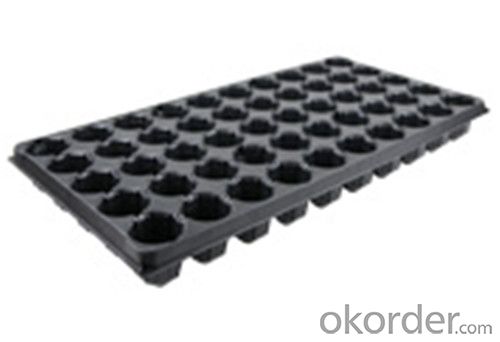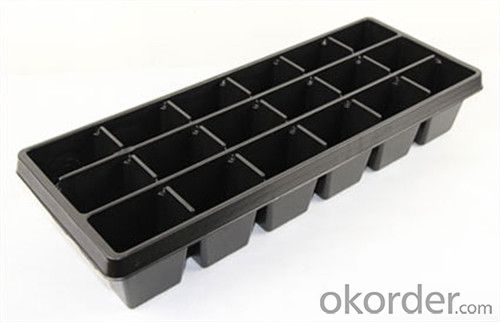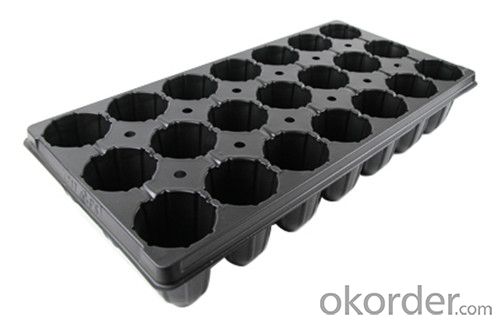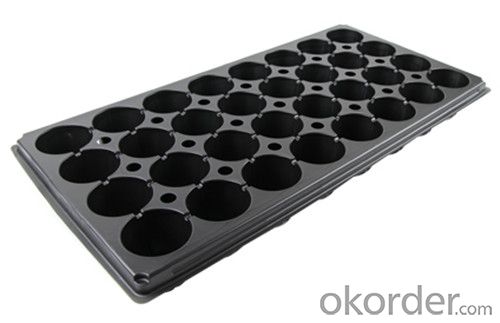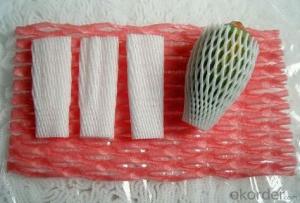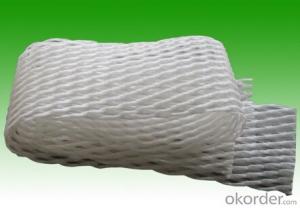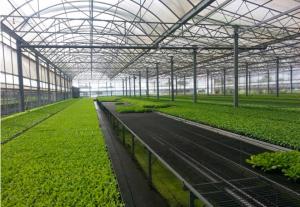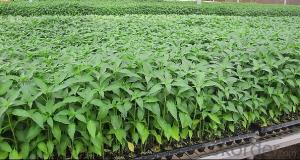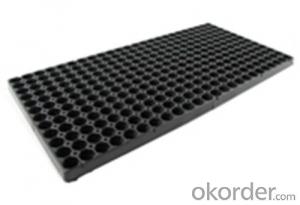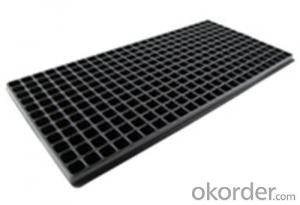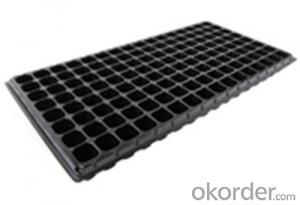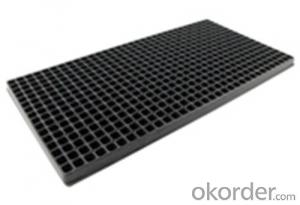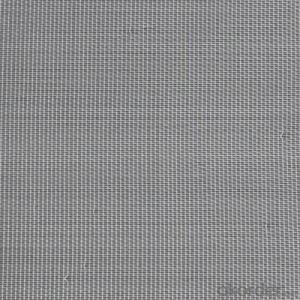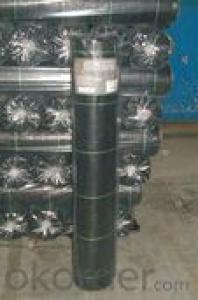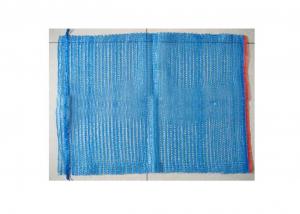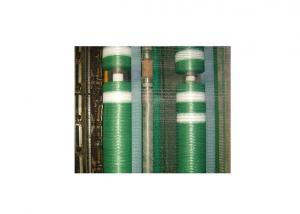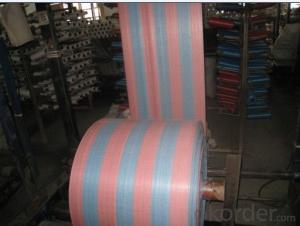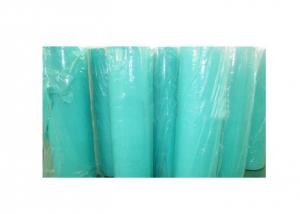Plastic Seed Tray Plug Tray for Green House Nursery Plug Tray Square Nursery Plug Tray
- Loading Port:
- China main port
- Payment Terms:
- TT OR LC
- Min Order Qty:
- 1000 pc
- Supply Capability:
- 100000 pc/month
OKorder Service Pledge
OKorder Financial Service
You Might Also Like
Structure of the seed tray:
Top quality and competitive price.
Variety design and good appearance.
Easy to use, and remove.
Durable and reusable.
Eco-Friendly.
Description Main Features of the seed tray:
Ideal for Starting seeds and Transplanting Seedling.
Suitable for both manual and automatic planting.
Suitable for Propagating Vegetables, Flowers and other plant from seed in green-house or indoors.
Seed Tray Images:
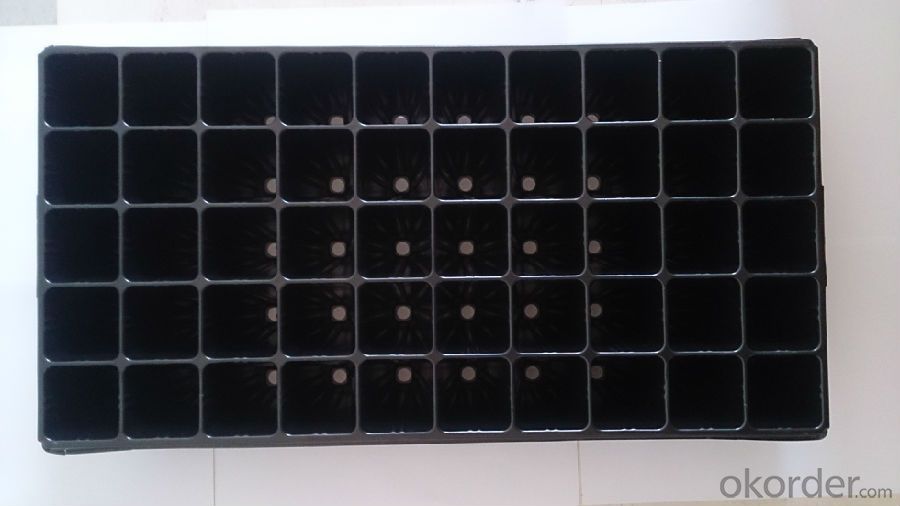
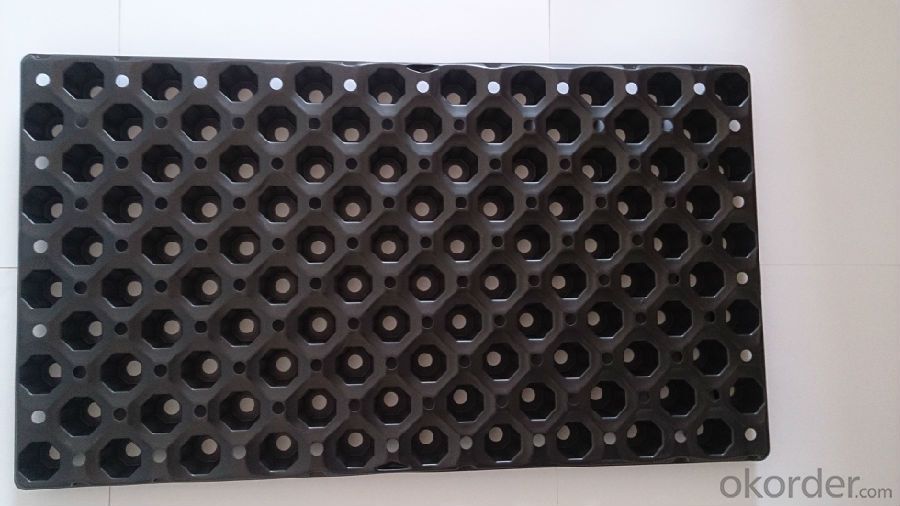
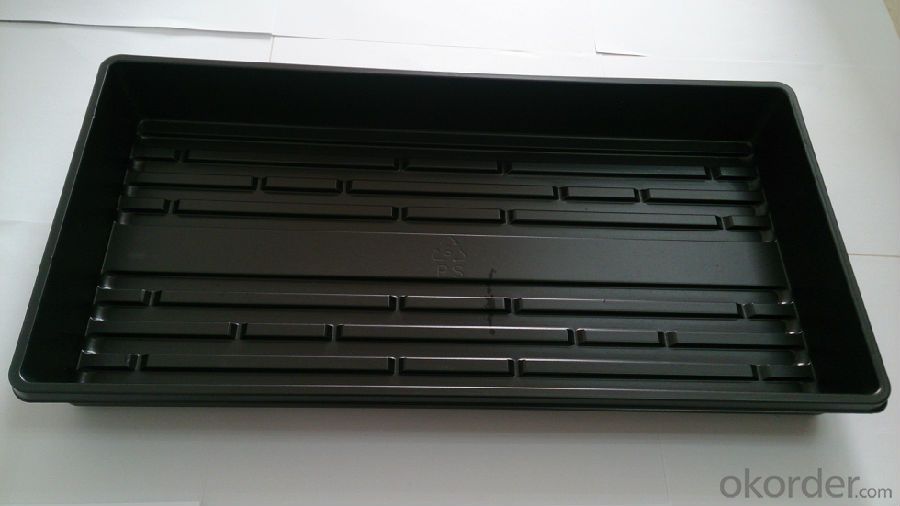
Seed Tray Specification:
Material: HIPS/PVC
Thickness: 0.5mm-1.5mm, Standard:1mm
Weight: 80g(±5)g-230g(±5)g, Standard weight:155g(±5)g
Size: length:490mm-540mm, width:190mm-345mm,depth:25mm-150mm
Standard:54mmX28mm
Cell count: 18-512
Package: carton
Using time: 8-10 times
FAQ:
Q:How Can I Get A Sample?
A:You can get samples by communicate with our export sales.
Q:How Long Is Delivery?
A:Delivery time will be 7-25 days according to order quantity.
Q:What Is The MOQ?
A:Our MOQ is 1*20FT container quantity, allow to mix several items.
Q:What Is Our Normal Payments Terms?
A:Our normal payment terms now is T/T, L/C or Western Union,Papal.
Q:How Do I Order Your Products?
A:You can check our website for any items you interest and you can also get communication with our export sales and order for it accordingly.
Q:What Kinds Of Material We Use In Our Product?
A:Our plastic flower pots use material such as PP polymer or PE polymer.
Thickness vs. Weight
Thickness of trays are from 0.5mm to 1.0mm.
1.0mm: 155g±5g; 100pcs/ctn.
0.9mm: 140g±5g; 120pcs/ctn.
0.7mm: 110g±5g; 150pcs/ctn.
0.6mm: 95g±5g; 180pcs/ctn.
0.5mm: 80g±5g; 200pcs/ctn.
Using time:
thickness of 0.5mm can be used 1 to 2 times.
thickness of 0.6mm can be used 3 to 4 times.
thickness of 0.7mm can be used 5 to 6 times.
thickness of 0.8mm can be used 7 to 8 times.
thickness of 0.9mm can be used 8 to 9 times.
thickness of 1.0mm can be used 8 to 10 times.
- Q: Are agricultural plastic products safe for soil microorganisms?
- Yes, agricultural plastic products can be safe for soil microorganisms if they are properly managed and disposed of. However, certain types of plastics, such as those containing harmful additives or chemicals, can have negative impacts on soil microorganisms. It is essential to choose biodegradable or compostable plastic alternatives and handle them responsibly to ensure the health and balance of soil ecosystems.
- Q: What are some ground cover options for sandy soils?
- Some ground cover options for sandy soils include beach grass, sedum, creeping phlox, moss rose, and creeping thyme. These plants are well-suited to sandy soils as they can tolerate low nutrient levels and have strong root systems to help stabilize the soil.
- Q: Can nursery trays be used for growing mushrooms?
- Yes, nursery trays can be used for growing mushrooms. They provide a convenient and effective way to cultivate mushrooms, providing the necessary space and environment for their growth. The trays can be filled with a suitable substrate for mushroom cultivation, such as compost or sawdust, and provide a controlled environment for the mushrooms to develop.
- Q: Are nursery trays suitable for hanging plants?
- No, nursery trays are not suitable for hanging plants as they are designed for a different purpose. Hanging plants require specialized containers with proper drainage and support for their growth.
- Q: Do nursery trays come with a built-in bottom tray for water drainage?
- Yes, nursery trays typically come with a built-in bottom tray for water drainage. This tray helps to prevent overwatering and allows excess water to drain out, ensuring proper moisture levels for the plants.
- Q: Commonly used plastic products, which are made of what raw materials, which can be recycled, such as what things, I hope to get a professional answer in detail
- Plastics are classified into thermoplastic and thermosetting plastics according to their plasticity. Normally, thermoplastic products can be recycled, while thermosets do not. According to the optical properties of plastics to points, can be divided into transparent, translucent and opaque materials, such as PS (polystyrene), PMMA (polymethyl methacrylate, PMMA), AS (styrene acrylonitrile copolymer) and PC (polycarbonate) belong to the transparent plastic, and it is the most opaque plastic plastic. There are many ways to classify plastics. They are no longer introduced.
- Q: Is the use of bioplastics restricted in certain areas due to environmental concerns?
- <p>Yes, there are regions where the use of bioplastics is restricted due to environmental concerns. Some areas have limitations because bioplastics may not degrade as expected in certain conditions, potentially leading to littering and harm to wildlife. Regulations vary by region, with some places requiring specific disposal methods or banning certain types of bioplastics to minimize environmental impact. It's crucial for manufacturers and users to be aware of local regulations and the environmental conditions of their area when considering the use of bioplastics.</p>
- Q: How do you control pests and diseases in ground cover plants?
- One way to control pests and diseases in ground cover plants is by practicing good cultural practices, such as regular weeding and proper watering. Additionally, using organic pest control methods, such as introducing beneficial insects or using natural repellents, can help prevent and minimize infestations. Regular inspection and early detection of any signs of pests or diseases is also crucial to taking prompt action and implementing appropriate treatment methods.
- Q: Can ground cover be used as a natural weed suppressant?
- Yes, ground cover can be used as a natural weed suppressant. Ground cover plants can densely cover the soil, preventing weeds from receiving sunlight and germinating. Additionally, they can compete with weeds for nutrients and water, further suppressing their growth. By choosing the right type of ground cover and maintaining it properly, it can effectively suppress weed growth in a natural and sustainable way.
- Q: Are there any ground cover plants that are suitable for alkaline soils?
- Yes, there are several ground cover plants that are suitable for alkaline soils. Some examples include creeping thyme, Russian sage, yarrow, and sedum. These plants have adapted to thrive in alkaline conditions and can provide attractive coverage while also helping to stabilize the soil.
Send your message to us
Plastic Seed Tray Plug Tray for Green House Nursery Plug Tray Square Nursery Plug Tray
- Loading Port:
- China main port
- Payment Terms:
- TT OR LC
- Min Order Qty:
- 1000 pc
- Supply Capability:
- 100000 pc/month
OKorder Service Pledge
OKorder Financial Service
Similar products
Hot products
Hot Searches
Related keywords
